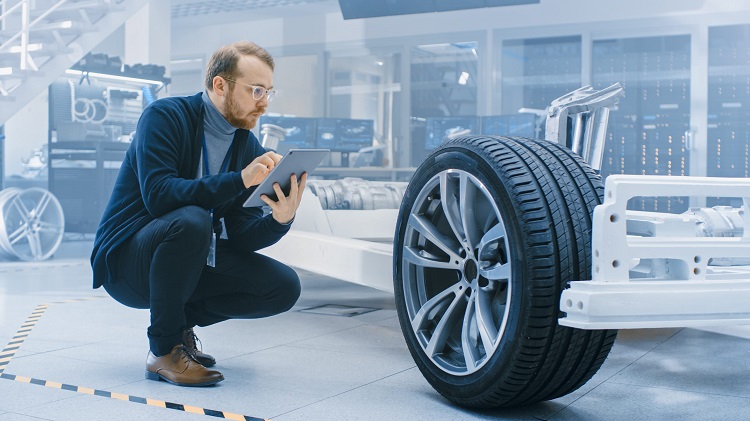Automotive engineering apprenticeships near me

As we move towards a more technologically advanced world, the automotive industry is at the forefront of innovation and development. Automotive engineering has played a crucial role in shaping our modern society, providing us with faster and more efficient modes of transportation. From the invention of the first automobile to the latest electric cars, automotive engineering has come a long way. This article will provide an overview of automotive engineering, its history, and future prospects. We will also discuss the challenges and benefits associated with this field of study. So buckle up and get ready for an exciting ride through the world of automotive engineering!
Automotive engineering: an overview
Automotive engineering is a field that involves the design, development, and production of vehicles. It encompasses various aspects of engineering such as mechanical, electrical, and chemical engineering. The goal of automotive engineering is to create safe, efficient, and reliable vehicles that meet the needs of consumers.
Automotive engineers work on every aspect of vehicle design, from the engine and transmission to the suspension and brakes. They also consider factors such as fuel efficiency, safety features, and environmental impact when designing new vehicles. In recent years, automotive engineering has become increasingly focused on developing electric and hybrid vehicles as well as autonomous driving technology.
Overall, automotive engineering plays a crucial role in shaping the way we travel and interact with our environment. As technology continues to advance at a rapid pace, it will be interesting to see how this field evolves in the coming years.
The History of automotive engineering
Automotive engineering has a rich and fascinating history that dates back to the late 19th century. The first gasoline-powered automobile was invented by Karl Benz in 1885, which marked the beginning of the automotive industry as we know it today. Over the years, automotive engineering has undergone significant advancements and innovations, leading to the development of faster, safer, and more efficient vehicles.
In the early 20th century, Henry Ford revolutionized the automotive industry with his assembly line production method, making cars more affordable for the average person. During World War II, automotive engineering played a crucial role in producing military vehicles and aircraft engines. In the post-war era, car manufacturers focused on creating stylish designs and incorporating new technologies such as power steering and air conditioning.
Today, automotive engineering continues to evolve rapidly with advancements in electric and autonomous vehicles. The history of automotive engineering is a testament to human ingenuity and innovation. It is exciting to think about what new developments will emerge in this field in the years to come.
The Future of automotive engineering
As we move forward, the future of automotive engineering looks incredibly promising. With advancements in technology and a growing concern for the environment, engineers are working tirelessly to create more efficient and sustainable vehicles. Electric cars have already made their way onto the market, but there is still much work to be done in terms of improving battery life and charging infrastructure.
Another area of focus for automotive engineers is autonomous driving technology. Self-driving cars have been a topic of discussion for years, but recent developments suggest that they may become a reality sooner than we think. This technology has the potential to revolutionize transportation as we know it, making roads safer and reducing traffic congestion.
Overall, the future of automotive engineering is exciting and full of possibilities. As our world continues to evolve, so too will our vehicles. It will be interesting to see what new innovations emerge in the coming years and how they will shape the way we travel.
The challenges of automotive engineering
As an automotive engineer, I can attest to the fact that there are numerous challenges that come with designing and building vehicles. One of the biggest challenges is meeting ever-increasing safety standards while still maintaining fuel efficiency and performance. This requires a delicate balance between weight reduction, aerodynamics, and advanced safety features such as collision avoidance systems.
Another challenge is keeping up with rapidly evolving technology. As cars become more connected and autonomous, engineers must stay up-to-date with the latest advancements in sensors, software, and artificial intelligence. This not only requires a deep understanding of these technologies but also the ability to integrate them seamlessly into existing vehicle systems.
Finally, there is the challenge of sustainability. With concerns about climate change and environmental impact on the rise, automotive engineers must find ways to reduce emissions and improve fuel efficiency without sacrificing performance or safety. This requires innovative thinking and a willingness to explore new materials and manufacturing processes.
Despite these challenges, however, automotive engineering remains an exciting field full of opportunities for innovation and creativity. By working together to overcome these obstacles, we can continue to push the boundaries of what is possible in vehicle design and engineering.
The benefits of automotive engineering
Automotive engineering has brought about numerous benefits to society. One of the most significant benefits is the increased accessibility and convenience of transportation. With the invention of cars, people can now travel faster and farther than ever before, allowing them to explore new places and opportunities. This has led to a more connected world where people from different regions can easily interact with each other.
Moreover, engineering has also contributed to the economy by creating job opportunities in various sectors such as manufacturing, sales, and maintenance. The industry has also spurred innovation in other fields such as materials science, electronics, and software development. Additionally, advancements in engineering have led to the creation of safer and more efficient vehicles that are better for the environment.
Overall, automotive engineering has had a profound impact on society by improving transportation, creating jobs, spurring innovation, and promoting sustainability. As technology continues to advance at an unprecedented pace, we can expect even greater benefits from this field in the future.
Conclusion
In conclusion, automotive engineering has come a long way since the first car was invented. With advancements in technology and innovation, the industry continues to grow and evolve. The future of engineering looks promising with the development of electric and autonomous vehicles. However, there are also challenges that need to be addressed such as environmental concerns and safety issues. Despite these challenges, the benefits of engineering cannot be ignored. It has revolutionized transportation and made our lives easier and more convenient. As we move forward, it is important to continue pushing boundaries and finding new solutions to improve the industry while keeping in mind the impact on society and the environment.





